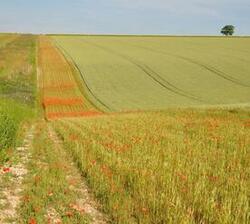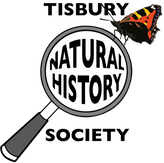Peter Thompson, Game & Wildlife Conservancy Council - Can wildlife and modern farming co-exist?19/11/2020
 Peter has very kindly made available here the slides he used for his talk, which include all the photographs that so clearly demonstrated that the answer is a resounding 'yes!' Peter began by comparing British farming in previous decades with what's happening now. Most farms used to rotate arable with dairy, beef, sheep or pig rearing and that was highly beneficial to wildlife. But now the country is broadly divided into vertical strips down its length, with purely arable mainly on the eastern side and animal farming increasing to the west. (More rain so more grass, maybe?) A particular problem has been autumn ploughing, which has left the land bare through the winter with no stubble to prevent soil erosion in heavy rain and resulting pollution of waterways with fertilisers and pesticides. What is required to help wildlife recover is year round care – nesting habitats, summer food for the young and food throughout the winter. And it can be done. On Peter's own farm, wildlife was declining like others but within five years populations were back up to levels of the 1960s. Peter trained as agronomist so can now talk about getting best of both worlds. Pesticide use is still very important but caring for the soil as much or more so, and this has been largely ignored until recently. Darwin is mostly known for his Origin of species, but his last publication was on the subject of earthworms and the vital role they can play, now known to restore carbon from plant growth back into the soil. For that to happen, new methods of rearing animals are needed, such as 'mob grazing' (described in the film, Kiss the ground). Indeed, Darwin said, 'It may be doubted if there are any other animals which have played such an important part in the history of the world as these lowly organized creatures.' Controlling insects with pesticides can still be necessary, but better still to choose flowers which attract insects that will eat aphids you don't want - 'Marmalade fly' hoverflies especially are very good at that, along with ladybirds and lacewings (as every gardener now knows). And for pollinators, bumblebees will fly even in poor conditions but they do need tussicky grass in field margins to overwinter, often in small mammal holes. To make a difference, such changes need to be on a 'landscape' scale, hence the 'farm clusters' now established throughout the UK and notably in our own backyard in the Chalke Valley, southward round Martin Down on Cranborne Chase and in our own Nadder Valley, where Peter Shallcross now leads the new Farmers Group.
We can be encouraged by the work done, for which Payments out of Government (ie taxpayers') funds are almost always one of the four essentials along with People, Planning and Passion. The latter three are definitely not in short supply so let us hope the first can withstand the assault of COVID and BREXIT. (This video is of the famous 'jangling keys' song of the corn bunting, now on its way back in this area thanks no doubt to our Farm Clusters.) For more information about these Farm Clusters, go to their website: it's a fascinating read. Comments are closed.
|
Photo: Avocets (Izzy Fry)
The headers display photos taken by our members. Do get in touch via the Contact Form if you'd like to submit a photo for selection.
Archives
May 2024
Categories
All
|

 RSS Feed
RSS Feed